Growing up in Kolkata, India
I am standing on two tin cans on my tip toes looking out of our front room window. Across are high rise apartment buildings with an array of things on their balcony, assortments of colourful clothes airing to dry, bikes strapped to the wall, plants wilting in the sun and birds in cages chirping. Below the buildings are a row of hole in the wall shops selling street food, odds and ends and on one corner a “Kite” shop!
Below our building, next to the pavement is a rickshaw stand and a shoe man, sitting under a tree, waiting for their next costumers. The street was always a fascination to me as a child and it is where I would watch the world go by, looking at everything that passed. It was a nonstop entertainment to me. The constant, noise, hustle and bustle. Car horns blasting, hawkers shouting, people’s footsteps shuffling as they go about their busy lives. Children playing with makeshift toys barefoot (I would fantasise me as a street kid) Several people bathing under one water pump across and dogs scrounging in rubbish bins. Morning has begun and my neighbourhood is waking up. Taking a deep breath, I smell a mixture of street food, depending on the time of day mingling with a foul smell of a rubbish bin nearby, the dust is blowing and I get the faint aroma of the Jasmin tree that shaded the men below.
“Get down from there you little nosey parker, you haven’t had your breakfast yet and its nearly time for school” my mother scolded but my eyes were taking it all in, one last time. “Oh, look” and then a pull at my sleeve and my tin cans collapse under as she pulls me down. We were brought up not to swear but my body language and pouting said it all!
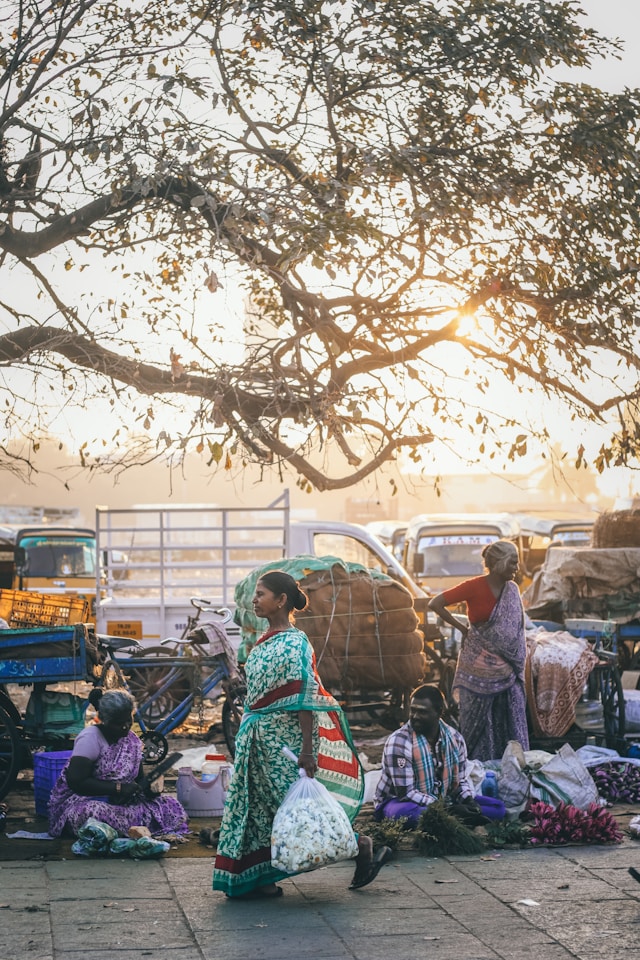
The view at the back of our house is where our servants prepared our meals, in other words “The kitchen”. There is a window allowing a vastly different view than the front. It is not as colourful nor is it busy or exciting! A wall with glass chips lining the bricks on top, separates our building and there is a narrow unpaved road leading to a slum, inhabited by the extremely poor. I would look out here too as mothers balanced their tiny children on their hips, small children carrying water jugs on their heads and people coming back and forth with shopping in cloth bundles with stray dogs following behind!
It is here where I got my first glimpse and understood what homelessness is about. Of Corse it is evident that there are homeless people everywhere but not on one’s doorstep!
Beggars Day
On certain days what I would call “Beggars Day” a stream of beggars would parade under our street. I could hear the commotion and run to the window and up on my tin cans again! A long procession of different deformities of all ages could be seen coming down the road to my left. Children in makeshift carts being pulled along by older children, with their hands cupped begging, small faces confused, their eyes squeezed tight shut, leaving a trail of tears on their dirty faces. Others with “Fake” amputated limbs with bloodied bandages wrapped over. People on crutches, many scrapping their broken, emaciated bodies on the floor, small children carried on the hips of parents, dogs barking and the pitiful wailing for help and yes, a few tagging along doing some fancy juggling and high wire acts! In between it all, the traffic is trying to manoeuvre the procession of beggars and the shouts of people in disgust, telling them to hurry up. I am half entertained, and half frightened by the uncomfortable and noisy scene below. A few who were known to my mother would make it up the stairs of our apartment and my mother would give them hot tea or milk and a loaf of bread and so I run from the front door to witness the handout from my mother and back to the frantic scenes below. I toss a few coins and there is a scramble for the prize, I am a little embarrassed and a little amused! To my disappointment, in time the line of beggars fades in a cloud of dust from my view and as suddenly as it started, life is back to normal!
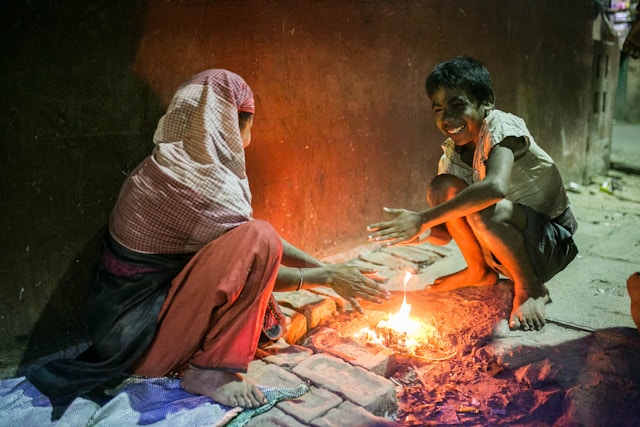
My family
My childhood was a comfortable one of having plenty, a good education, ballet and music classes, private tutors to keep me from failing grades and a carefree life. We had lots of friends and parties for all occasions. We had servants to do our chores and cars or our favourite rickshaw men to take us to school or shopping. This is what ones knows as an “upper middle-class family!”
My mother was a Sunday school teacher, my father a businessman and an engineer. We had money. I would describe my mother as small in stature, delicate, strong willed with a kind heart. She loved to sing, play piano by ear, dance but most of all she loved people. My mother loved helping strangers and giving to the poor. I would say that she was the only person to teach me the meaning of compassion during my childhood. I would reluctantly accompany her on her may visits to the poor, handing out food. She was a volunteer with Mother Teresa’s Missionaries of Charities in Kolkata. The examples of her caring for others were many and often a contention with my father but regardless her work with the needy continued.
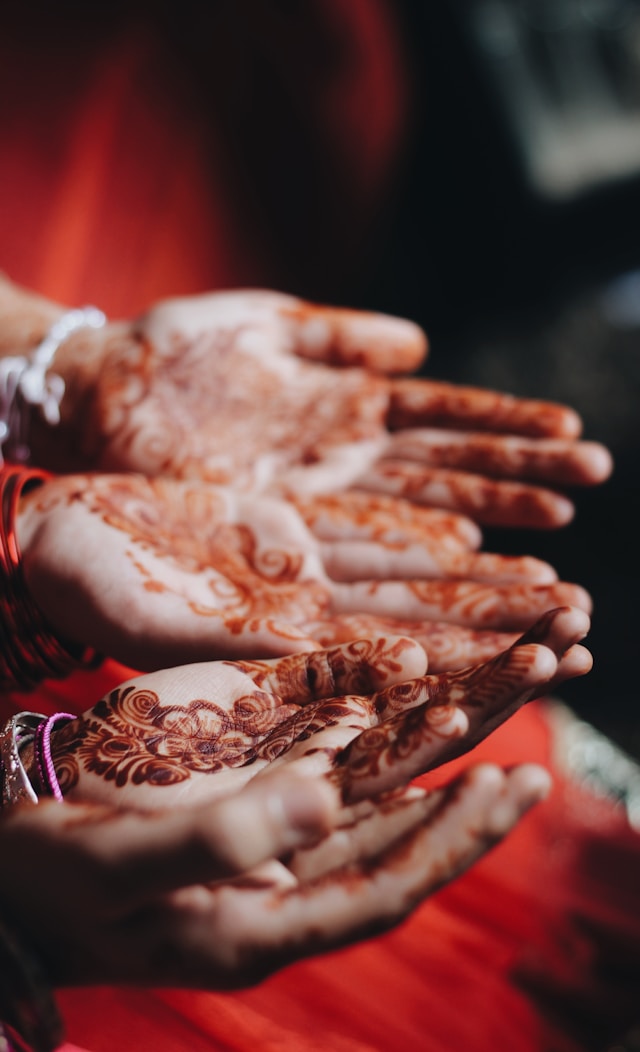
Leaving home
My maturity into my teenage years were a mixture of rebellion and uncertainty. I was a conundrum. “What am I going to do with you, Child?” would often be the question! My mother passed away at an early age, she made sure her question to my future was secured by pursuing a career in Nursing in Edinburgh. My last memory of my mother was of her standing in the very place where I would stand on my tin cans waving goodbye to me as I was driving away to an unknown future. I was 17 years old!
A telegram came while I was still in training in Scotland, informing me by my father of her untimely death I later heard that a servant found her lying at the back of the house by a door that lead to “The Kitchen” She was alone, family and fair weathered friends had left, money was now short and she had been in poor health, life was carrying on. Neighbours and strangers swarmed the house out of curiosity the day she lay dead, but I take comfort in thinking that she was “not alone at that time “ those who she helped in her shot life came to pay their respects to her for her commitment and caring of strangers and the people in slums that she helped just behind out building were there too! She was loved by the homeless and strangely in the end, she must have fully acknowledged what it was to be “Homeless in a home”
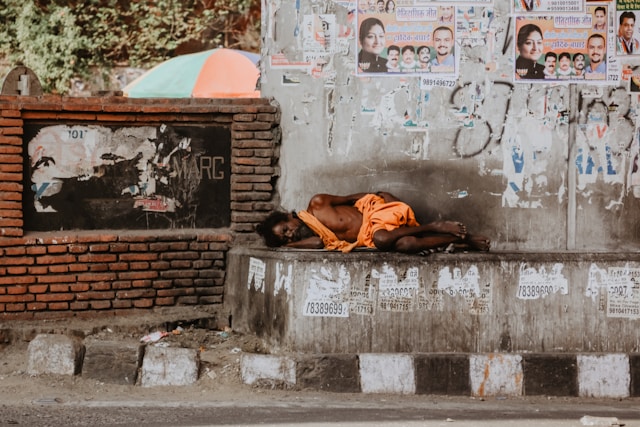
Now, after years of moving from place to place to where my career in health care demanded or for reasons for better opportunities abroad, I am content and have come full circle as they say in my late years. I realise that one cannot erase those memories or snapshots of one’s childhood or go back in time to do more. What I can do is work towards a better understanding of “Homelessness” and endeavour to challenge myself and ignore the naysayers, just as my mother did to, reach out, to stand with those who’s tireless work for the homeless goes unrecognised and bring our awareness for the demise of all people, regardless of age, creed or colour.
Covid-19 has brought us to our knees but I know that there is still hope to change how we see the future and how we can help one homeless stand tall and become an active and healthy part of our society.
In memory of my Mother Pricilla Achen Liu.
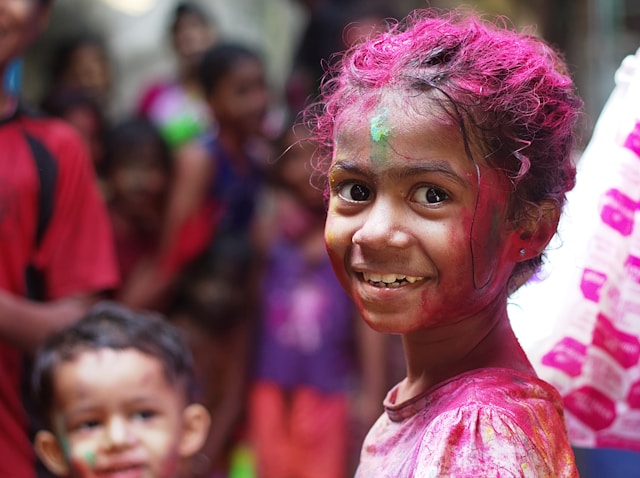
“The biggest gifts you can give to others is to believe in them when they have lost belief in themselves”

Photos by Prashanth Pinha Ravi Sharma, Ibrahim Rifath, Martin Jernberg, Himanshu Singh Gurjar on Unsplash
